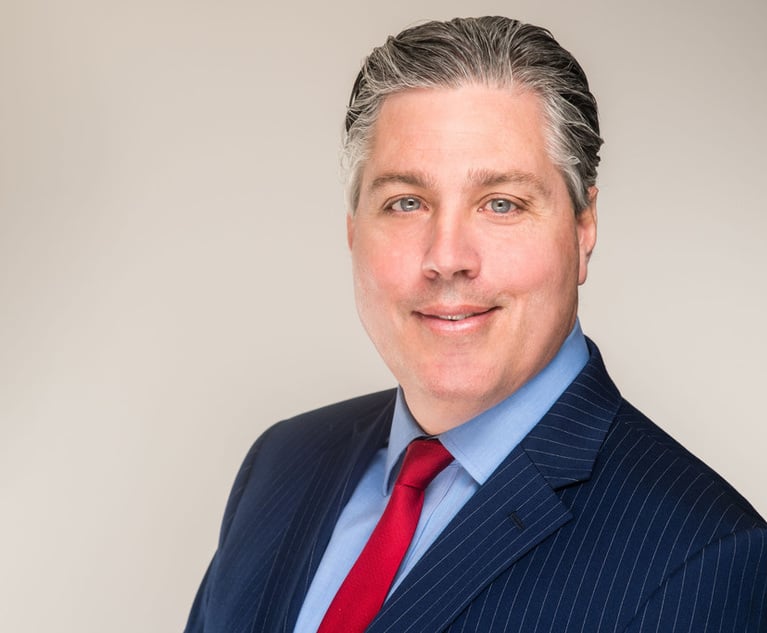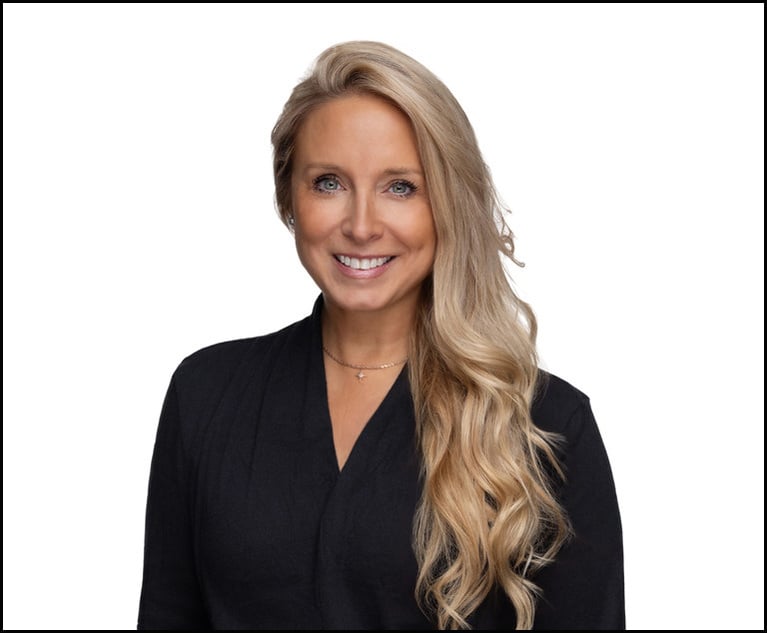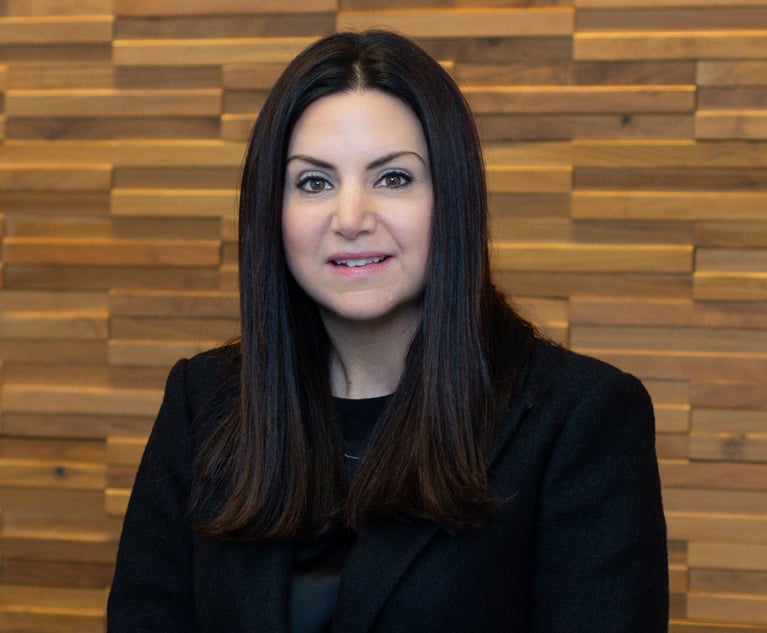People in the News—April 16, 2019—Williams Family Law
Partner Susan J. Smith of Williams Family Law joined the board of trustees of the Bucks County Historical Society.
April 16, 2019 at 11:00 AM
4 minute read
 Photo: Pressmaster/Shutterstock.com
Photo: Pressmaster/Shutterstock.com
Elected and Appointed
Partner Susan J. Smith of Williams Family Law joined the board of trustees of the Bucks County Historical Society, the private nonprofit organization charged with collecting, preserving and interpreting the history and culture of Bucks County and the Delaware Valley region.
The historical society operates the Mercer Museum, Spruance Library and Fonthill Museum and is the primary inheritor of the material and intellectual legacy of Henry Chapman Mercer. This includes a collection of tools and artifacts that illuminate the history of pre-industrial America.
The historical society is governed by a volunteer board of individuals from the surrounding community.
Smith practiced family law as a divorce attorney for over a quarter of a century. She is a past recipient of the Bucks County Bar Association's Woman of the Year award.
*****
Mira Baylson, counsel at Akin Gump Strauss Hauer & Feld, and Donald Perelman, member at Fine, Kaplan and Black, were recently elected to the board of directors of the Public Interest Law Center.
Baylson focuses on white-collar defense and investigations and complex commercial litigation. Perelman has experience in the conduct of antitrust, class action and other complex litigation.
The Public Interest Law Center uses high-impact legal strategies to advance the civil, social and economic rights of communities in the Philadelphia region facing discrimination, inequality and poverty. It uses litigation, community education, advocacy and organizing to secure access to fundamental resources and services.
Speakers
Gawthrop Greenwood partner Stephen J. Olsen shared his insights in a recent presentation before the Pennsylvania Conference of State Trial Judges.
During the conference, Olsen co-presented on the major legal issues surrounding Pennsylvania's Medical Marijuana Act.
His course on “Medical Marijuana from the Ground Up” included: development of current medical marijuana law and regulations in Pennsylvania and the risks they present in conflict with federal law; requirements and regulations governing medical marijuana growers and dispensaries; anticipated growth of the cannabis industry in Pennsylvania; medical marijuana issues that may result in litigation for growers, investors, employers and families; the complexity of compliance requirements; due diligence on investing in the industry; navigating Department of Health hearings; employment issues; transactional issues; municipal issues that arise when handling business, real estate and zoning for medical marijuana growers and dispensaries; and educational institutions conducting clinical research.
Events
“Lawyers and the Holocaust: An Ethical Exploration” is set to examine the history and ethics of the legal profession in Germany both prior to the ascension of the Nazi party in 1933 and during the Nazi period.
Examining the role of legal practitioners in Nazi Germany will underscore the reality that moral codes governing the legal profession can break down or be distorted with devastating consequences.
The program will address questions such as: What is the proper role of lawyers, judges and the law? What did the legal profession do to further or oppose the legal system during the Holocaust? What are some of the characteristics of those ethical challenges that may recur—in a different form—in the present?
This interactive program will investigate the enabling and executing roles that professionals and organizations played in Nazi Germany as a means of displaying the importance of professions in contemporary society.
This event is set to feature faculty affiliated with the Fellowships at Auschwitz for the Study of Professional Ethics, which challenges young professionals to develop as ethical and responsible leaders through two-week, intensive programs.
This program is presented by Villanova University's Charles Widger School of Law's The David F. and Constance B. Girard-diCarlo Center for Ethics, Integrity and Compliance at Cozen O'Connor's Philadelphia office from 4:40 to 6:30 p.m. April 26.
This program is approved for 2 ethics CLE credits by the Pennsylvania Continuing Legal Education Board. Registration is required.
This content has been archived. It is available through our partners, LexisNexis® and Bloomberg Law.
To view this content, please continue to their sites.
Not a Lexis Subscriber?
Subscribe Now
Not a Bloomberg Law Subscriber?
Subscribe Now
NOT FOR REPRINT
© 2025 ALM Global, LLC, All Rights Reserved. Request academic re-use from www.copyright.com. All other uses, submit a request to [email protected]. For more information visit Asset & Logo Licensing.
You Might Like
View All



Trending Stories
- 1ACC CLO Survey Waves Warning Flags for Boards
- 2States Accuse Trump of Thwarting Court's Funding Restoration Order
- 3Microsoft Becomes Latest Tech Company to Face Claims of Stealing Marketing Commissions From Influencers
- 4Coral Gables Attorney Busted for Stalking Lawyer
- 5Trump's DOJ Delays Releasing Jan. 6 FBI Agents List Under Consent Order
Who Got The Work
J. Brugh Lower of Gibbons has entered an appearance for industrial equipment supplier Devco Corporation in a pending trademark infringement lawsuit. The suit, accusing the defendant of selling knock-off Graco products, was filed Dec. 18 in New Jersey District Court by Rivkin Radler on behalf of Graco Inc. and Graco Minnesota. The case, assigned to U.S. District Judge Zahid N. Quraishi, is 3:24-cv-11294, Graco Inc. et al v. Devco Corporation.
Who Got The Work
Rebecca Maller-Stein and Kent A. Yalowitz of Arnold & Porter Kaye Scholer have entered their appearances for Hanaco Venture Capital and its executives, Lior Prosor and David Frankel, in a pending securities lawsuit. The action, filed on Dec. 24 in New York Southern District Court by Zell, Aron & Co. on behalf of Goldeneye Advisors, accuses the defendants of negligently and fraudulently managing the plaintiff's $1 million investment. The case, assigned to U.S. District Judge Vernon S. Broderick, is 1:24-cv-09918, Goldeneye Advisors, LLC v. Hanaco Venture Capital, Ltd. et al.
Who Got The Work
Attorneys from A&O Shearman has stepped in as defense counsel for Toronto-Dominion Bank and other defendants in a pending securities class action. The suit, filed Dec. 11 in New York Southern District Court by Bleichmar Fonti & Auld, accuses the defendants of concealing the bank's 'pervasive' deficiencies in regards to its compliance with the Bank Secrecy Act and the quality of its anti-money laundering controls. The case, assigned to U.S. District Judge Arun Subramanian, is 1:24-cv-09445, Gonzalez v. The Toronto-Dominion Bank et al.
Who Got The Work
Crown Castle International, a Pennsylvania company providing shared communications infrastructure, has turned to Luke D. Wolf of Gordon Rees Scully Mansukhani to fend off a pending breach-of-contract lawsuit. The court action, filed Nov. 25 in Michigan Eastern District Court by Hooper Hathaway PC on behalf of The Town Residences LLC, accuses Crown Castle of failing to transfer approximately $30,000 in utility payments from T-Mobile in breach of a roof-top lease and assignment agreement. The case, assigned to U.S. District Judge Susan K. Declercq, is 2:24-cv-13131, The Town Residences LLC v. T-Mobile US, Inc. et al.
Who Got The Work
Wilfred P. Coronato and Daniel M. Schwartz of McCarter & English have stepped in as defense counsel to Electrolux Home Products Inc. in a pending product liability lawsuit. The court action, filed Nov. 26 in New York Eastern District Court by Poulos Lopiccolo PC and Nagel Rice LLP on behalf of David Stern, alleges that the defendant's refrigerators’ drawers and shelving repeatedly break and fall apart within months after purchase. The case, assigned to U.S. District Judge Joan M. Azrack, is 2:24-cv-08204, Stern v. Electrolux Home Products, Inc.
Featured Firms
Law Offices of Gary Martin Hays & Associates, P.C.
(470) 294-1674
Law Offices of Mark E. Salomone
(857) 444-6468
Smith & Hassler
(713) 739-1250





